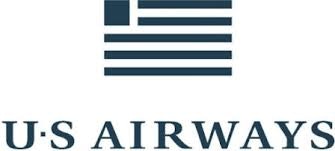The industry is taking its seasonal dive. Stock prices are dropping for US Airways Group, Inc. (NYSE:LCC), Delta Air Lines, Inc. (NYSE:DAL), and United Continental Holdings Inc (NYSE:UAL). This brief essay will try to discern the future outlook for the industry, and search for the one company that’s better prepared for takeoff after the low season.
Flying high

US Air has suffered from the last economic recession, but revenue and income were kept on the positive side. Performance is expected to improve with the recent merger, as both companies complement each other. Also, structural reforms have allowed cost reduction, and a new tax plan is expected to lessen operating losses.
When looking at fundamentals, US Air is trading at five times its earnings, well below the industry’s average. Operating margins remain positive, and several measures have been taken by management to keep it that way. Also, the merger has raised the firm’s competitiveness in both domestic and international markets. Hence, it is recommended to buy this stock because the company promises to battle competition while increasing cash volumes.
Flying still
Future prospects for Delta Air Lines, Inc. (NYSE:DAL) depend heavily on the industry’s performance. Since the Great Depression, the company has increased revenue and reduced debt. Also, the firm is the leading operator in New York and Atlanta, two of the most important U.S. airports, and has heavily raised its presence at London’s Heathrow. Additionally, management holds leverage over salary negotiations since the unionization level is low.
Fundamentals indicate Delta Air Lines, Inc. (NYSE:DAL) is trading at a premium similar to US Air, however, operating margin and net income are lower. Further, the firm has been consistently driving down debt and raising revenue. But, cash flow has not found a steady upward trend due to the industry’s instability.
In all, Delta Air Lines, Inc. (NYSE:DAL) stands at a middle ground between US Air and United, meaning the company has lower risks than United, but its fundamentals do not match. Last, the industry’s short-term uncertainty requires a well-proven management team. Until management puts the firm onto a solid all around trend, it is recommended to hold shares.
Flying low
Since the 1990s, United Continental Holdings Inc (NYSE:UAL) has faced many up and downs. Last year, the company posted a net loss of $723 million, and this year profit is expected to be short due to salary increments. On the upside, management has focused on improving on-time arrivals and average occupancy rates.
After Continental’s acquisition in 2010, United has become the largest airline operator in the U.S. Over the last several years, the firm has focused on catering to premium-paying customers, and close to 30% of its capacity has been destined to that purpose. Nevertheless, the industry remains unstable and competition has risen considerably. Hence, profits for the firm have not met expectations.
Financially, United is far from its zenith. Besides last year’s losses, cash flow has not matched increasing debt levels for quite awhile. Also, revenue has stagnated, curtailing a much-needed cash flow recovery. Additionally, the industry’s instability limited positive results derived from important structural reforms.
Currently, United is expected to save $9 billion in taxes due to previous losses, which will help it stabilize some finances. It is trading at a 77% premium to the industry average price-to-earnings ratio, and is expected to suffer from global recession. So, it is recommended to hold this stock, since it remains very risky, the company’s future is uncertain, and structural reform benefits were cut short.
Landing
The airline industry is known for its instability and volatility. Nevertheless, future shareholders can invest in certain companies with well-proven finances and management. US Air holds great potential, given its room for expansion and increasing cash flow, which should allow it to face any headwinds.
Damian Illia has no position in any stocks mentioned. The Motley Fool has no position in any of the stocks mentioned.
The article Flying High or Low? A Take on The Airline Industry originally appeared on Fool.com.
Copyright © 1995 – 2013 The Motley Fool, LLC. All rights reserved. The Motley Fool has a disclosure policy.




